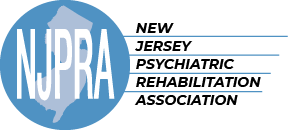Certified Psychiatric Rehabilitation Practitioner (CPRP)
Certified Psychiatric Rehabilitation Practioner (CPRP) is a certification that is offered through PRA, a national psychiatric rehabilitation association. If you have dedicated your career to providing exceptional psychiatric rehabilitation, now is the time to enhance your professional status with the CPRP certification. Join a distinguished group of more than 2,700 individuals who demonstrate how psychiatric rehabilitation positively changes the lives of individuals with serious mental illness to one of hope, self-determination, empowerment and recovery.
The CPRP credential is a test-based certification that fosters the growth of a qualified, ethical, and culturally diverse psychiatric rehabilitation workforce through enforcement of a practitioner code of ethics. Currently there are CPRPs with PhDs to GEDs, occupational therapists to peer specialists, social workers to case workers–they all share a commitment to the fundamental principle that recovery from serious mental illness is possible.

CPRPs incorporate the most successful and cost-effective practices for adults with severe and persistent mental illness and ensure that your staff has mastered the principles, skills and knowledge necessary to carry out those practices.
70% of CPRPs have been with their agency for more than 5 years. 89% of CPRPs find personal value in their certification. Distinguish yourself with the only nationally recognized professional credential for psychiatric rehabilitation professionals.
Eligibility Requirements
Individuals of all backgrounds can achieve the CPRP. Currently CPRPs vary from MDs, PhDs to GEDs, occupational therapists to peer specialists, social workers to case workers – all sharing a commitment to the fundamental principle that recovery from serious mental illness is possible.
Candidates for the CPRP must meet eligibility requirements in three categories:
- Academic Preparation
- Work Experience
- Training in Psychiatric Rehabilitation
There are six pathways to certification, based on these three categories:
Individuals who have formal academic preparation in psychiatric rehabilitation:
Pathway I.
Qualifying internship or 6 months full-time work experience.
Pathway II.
12 months of full-time work experience.
Individuals who have academic preparation in ALL other fields:
Pathway III.
Qualifying internship or or 24 months of full-time work experience; and
45 hours of training.
Pathway IV.
Qualifying internship or 12 months full-time work experience; and
45 hours of training.
Pathway V.
24 months full-time work experience; and
45 hours of training.
Pathway VI.
12 months full-time work experience; and
45 hours of training.
Individuals who have formal academic preparation in psychiatric rehabilitation:
Pathway I.
Qualifying internship or 6 months full-time work experience.
Pathway II.
12 months of full-time work experience.
Pathway III.
24 months (2 years) of full-time work experience in a psychiatric rehabilitation program/environment.
Individuals who have academic preparation in ALL other fields:
Pathway III.
Qualifying internship or or 24 months of full-time work experience; and
45 hours of training.
Pathway IV.
Qualifying internship or 12 months full-time work experience; and
45 hours of training.
Pathway V.
24 months full-time work experience; and
45 hours of training.
Pathway VI.
12 months full-time work experience; and
45 hours of training.
Please visit the PRA website for full information about CPRP certification, including required documentation, FAQs, and exam dates and deadlines.
Stay connected
Enter your information and receive updates from NJPRA on upcoming events, public policy alerts, and mental health news for the Garden State.
